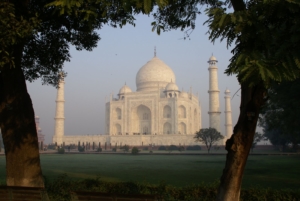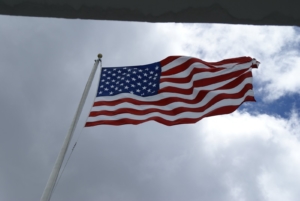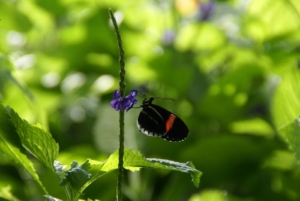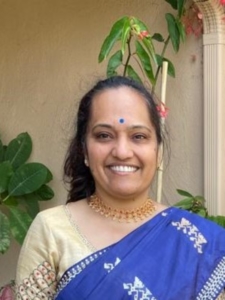Where Are You From?
The Arctic tern
The Arctic tern travels the longest migration path of any animal in the world—18,600 miles to reach Antarctica. They migrate to enjoy the summer sun all year round. They can bounce around continents to take advantage of culinary delights and good weather. They let the ocean breeze carry their lightweight bodies through great distances to save energy. They can sleep and eat while gliding.
When the Arctic tern takes a detour or makes a pit stop in Nova Scotia or Spain, it does not get christened with a new name.
It does not become a Scottish tern.
It does not get called a Spanish tern.
It remains the Arctic tern.
No one asks, “But where are you really from?”
No one tells it to go back to where it came from.
It remains the Arctic tern.
Lore says that 4,000 years ago, in 1500 BC, the mystical Saraswath River in the Indo-Gangetic plains in the north of India dried up. In the quest for survival, my ancestors migrated south to Goa, along the west coast of India.
They called Goa home for several centuries. They adopted a new religion and migrated again in waves, this time to Mangalore, further south on the west coast of India—first because of the Portuguese/Spanish inquisition in 1560, and later to escape from the wrath of Indian rulers who were known for their abomination towards Christians.

The Taj Mahal
Fast forward three hundred years, another miffed Indian ruler received exaggerated reports about the role of Indian Christians helping the British, took them on an extermination march from Mangalore to Seringapatam, and held them captive for fifteen years until his death during the Fourth Anglo-Mysore War.
Freed from captivity, my ancestors were reestablished in Mangalore and have lived there for more than a millennium.
This is the identity I inherited from my ancestors, that of a Mangalorean Catholic.
Like any other community, the migrations continued to the far ends of the earth, for better economic pastures, for academic pursuits, for adventure, and sometimes for the pursuit of love.
I migrated for the last reason, from Mangalore to California, a distance of 9,000 miles, to join my husband who worked in San Jose.

Stars and Stripes flying gloriously
Go back to where you came from.
These are the things that have been said to me.
“Christians are outsiders. They don’t belong to India.”
“India has suffered because of Christians.”
“We will not let ‘you people’ continue exploiting India.”
The Washerman’s dog
Dhobi ka kutta na ghar ka na ghaat ka (literal translation: The washerman’s dog neither belongs to the banks of the river nor the home).
This popular Indian idiom originated in North India before water ran in taps. The village washerman went to each house to collect soiled clothes. He washed them at the banks of the river. His faithful dog, as the idiom suggests, followed its master wherever he went and spent an equal amount of time at the banks and his hut.
To the dog, neither place was home.
Showers in America
During my first week in America, I lived out of my suitcase. My husband and I moved out of his bachelor quarters and found an apartment suited for a married couple. It was a perfect one bedroom. I was delighted to find out that the landlord was from Mangalore.
When our landlord realized that I had only arrived a few days before, he graciously gave me the grand tour of the apartment, along with an orientation for a newly arrived immigrant.
When we reached the bathroom, he said:
“No baldi (bucket) and chembu (mug) here, only showers. Twenty-four hours running hot water and electricity here, not like Mangalore. You don’t have to worry about water shortage or load shedding either. This is America.”
and
When he saw me look intently at the glass windows, he said, “This is America, it is safe, you don’t need iron grills on windows.”
and
“Remember to turn on the exhaust in the bathroom and kitchen, I have to remind all the Indians, they think this is India.”
We moved in on a Monday.
I enjoyed a long hot shower and tried to keep my hair away from the spray of water but did not succeed. In the evening, my husband took me to Walgreens, the Mecca of all necessities, to buy a shower cap.
I asked the salesperson for a ‘shower cap’ and they responded, ‘Sorry can you repeat that, sorry, uum, no, we don’t have that.’
We tried K-Mart and Wal-Mart with no different results.
I added ‘shower cap’ to the list of things on my wish list.
I wrote a letter to my mother and listed the things that were different in America.
No shower caps.
They drive on the right side of the road.
The orientation of the light is upside down.
We say ‘to go my order’ not ‘ parcel my order.’
No one says lime juice, it is Lemonade.
We have huge trucks, no one understands lorries.
The dates confuse me, it’s mm/dd/yy not dd/mm/yy.
I made do with clean plastic grocery bags on my head, until I accidentally discovered the shower cap in Walmart two years after I first arrived in America. The root cause for this gross miscommunication was colonialism, specifically my non-rhotic Indian accent modeled after the British non-rhotic accent.

Butterfly Conservatory
The monarch butterfly
The monarch butterfly uses a genetic, magnetic, and sun compass to migrate.
Each generation of butterflies often returns to the same groves along the coast each year, sometimes even a particular tree, without ever having been there before.
Trip to India
On my first trip to India after I migrated to the U.S., I bought everything on my wish list.
Shower cap
Kashmiri Chilies
Tamarind
Bafath powder
Ladoo
Pickle(s)
Tondor and gindla (rice cake steamer)
Meet Mirsank (all-purpose mangalorean marinade)
I explained to my grandma that a brinjal is called an eggplant in America.
Ladyfinger is an okra.
There were different kinds of coffee available in a coffee shop.
The roads are wide, and we drive in lanes. People followed traffic rules, even with no traffic cops around. We call our police, “cops.”
The onions are double in size and made my spicy curries taste like a ball of sugar was dropped into it.
I told my grandma and my mother about our landlord and his wife. How they dropped off a dish of dosa batter when I was expecting our first child. They invited us over for a delicious meal—perfectly made food, unlike the experiments gone bad by a struggling kitchen actor like me. It is customary for an expectant mother to be pampered by her relatives and community, and my landlord’s wife sensed my homesickness.
The Dragonfly
The multi-generational transoceanic migration of the dragonfly (Pantala flacescens), takes three generations to complete the yearlong migration.
I want to complete that circle of migration, to visit the dried up Saraswathi valley, feeling the nostalgia and deja vu for the home of my ancestors. Will my children and their children care about where they came from? What will they call home? Kashmir, Goa, Mangalore, California, or some other place they may migrate to?
The Wildebeest
The Wildebeest migrates in a circular route from Serengeti to Masai Mara each year during the Great Wildebeest migration.
I traverse between India and America and claim both of them as home. When the wildebeest sets forth on their dramatic journey each time, encountering predators along the way, it does not deter their instinct to migrate and claim their habitat.
I am exactly where I am meant to be.
Things that I want to say to those who question where I belong:
Blankets of monsoon rain accompanied by heavy claps of thunder that makes the bones shudder. This is home.
Sea Lions in San Francisco, California summers, and sarees. This is home.
World cup cricket on Willow TV, Little League Baseball, weekend soccer games. This is home.
Mangalore Buns, Salman Khan concert in San Jose, Christmas in the Park. This is home.
Where fresh spices are ground on mortar pestles and its aroma wafts through the home even before it is sautéed in the pot. This is home.
The place where my Muslim Art teacher in Mangalore greets me in a language spoken by Christians. When my vegetarian Hindu neighbors request us to please feed their cat the entrails of the fish when we cleaned it. This is home.
When my Mexican neighbor and my husband indulge in their friendly banter on which came first—chapati or tortilla. This is home.
Like the salmon, who start their home in freshwater and migrate to the ocean then return home to spawn and die, our internal celestial soul maps are not determined by passports and borders.
This is home.
Majella Pinto is an Indian-American writer whose work has appeared in eMerge magazine and Twist & Twain, among others . She lives in Campbell, CA and is also a visual artist. Her work can be found on www.artbymajella.com.





